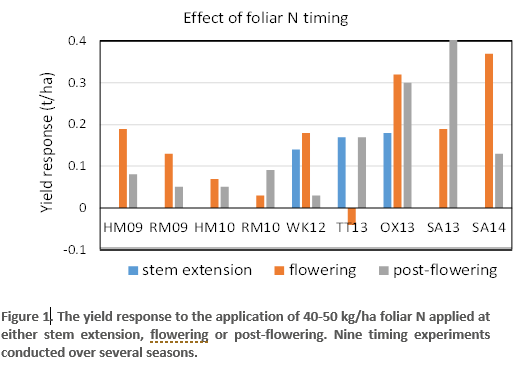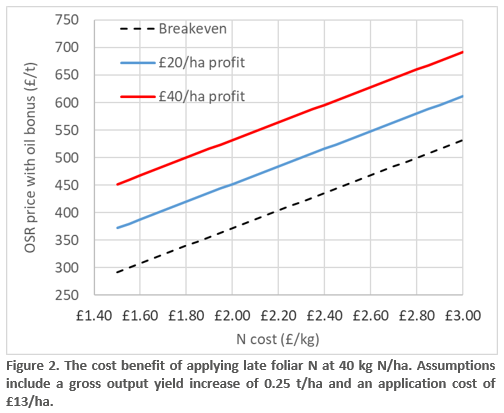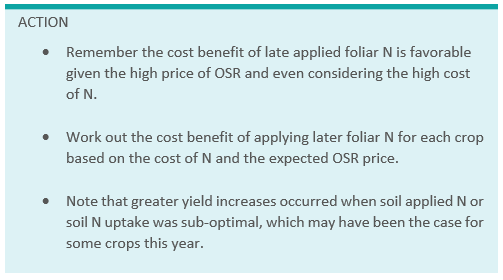Charlotte White & Pete Berry
In OSR the application of 40-50 kg/ha of late foliar N, applied at the end of flowering, can result in yield increases of 0.3 t/ha. As part of an Innovate UK project in 2015 twenty-seven foliar N experiments done by ADAS and Yara were collated and reviewed. This showed that the average seed yield response to 40 – 50 kg/ha foliar N was 0.30 t/ha when application conditions were not too warm (26 experiments). There was no consistent difference in yield response between trials that received 40 and 50 kg N/ha. However, yield responses were variable, ranging from 0 to 0.78 t/ha. A yield loss of 0.75 t/ha was recorded when applied in hot conditions, so it’s recommended to apply when temperatures are less than 19°C.
Larger yield responses to foliar N application followed sub-optimal soil applied N, or when N uptake was suboptimal. Foliar N decreased seed oil concentration by 0.7 %, which caused the increase in gross output to be slightly less than the increase in seed yield at 0.25 t/ha. Similar sized yield responses could be achieved from applications between mid-flowering and two-weeks after the end of flowering (Figure 1), which shows that foliar N can be applied with sclerotinia fungicides (check tank mixing compatibilities). There were also yield increases from applications of foliar N at stem extension. The uptake efficiency of foliar N was high at 70 – 100%.

The cost benefits of using foliar N are often finely balanced, depending on the cost of the product and the value of the oilseed. It is advisable to do the cost benefit analysis, for each specific situation. Figure 3 below illustrates the product cost and OSR price combinations needed to achieve £40/ha or £20/ha gross margin over N costs, or to break even. OSR prices are high now at over £600/t making the equation more favourable for use of foliar N, even with the high cost of N. For example, if the cost of N is £2.40 per kg of N and the OSR price is £600/t, then foliar N at a rate of 40 kg/ha would cost £96/ha (or £109/ha if an extra pass is required), and the return from an extra 0.25 t/ha would be £150/ha.


